Budget 2019/2020 : high expectations
 Par
Jameela Jaddoo
Par
Jameela Jaddoo
 Par
Jameela Jaddoo
Par
Jameela Jaddoo

Just a few days are left before the last budget of this current government is announced. Everyone’s eyes and ears are glued on this budget, which is most vital in the sense that the IMF has rung the alarm bell concerning the economic health of the country. Various stakeholders in different sectors have highlighted their expectations for this budget.
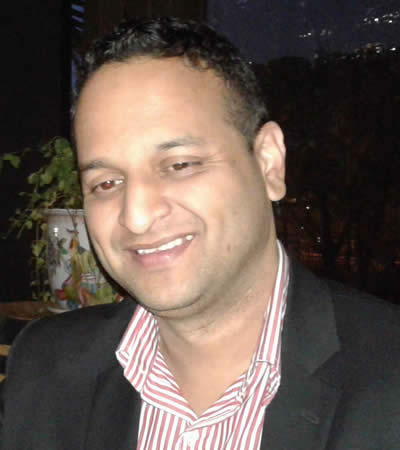 Amit Achameesing, Founder of New Economic Thinking Academy and Lecturer at Whitefield Business School, explains that a common mistake among most politicians is that they focus exclusively on short-term horizons. “A diagnosis of the economic situation clearly points to a persistently ailing economy. To understand this, we have to step back and look at the macroeconomic picture over time. Economic growth has been averaging less than 4% over the past two decades, and Mauritius has been dubbed a country which is caught in the middle-income trap.”
Amit Achameesing, Founder of New Economic Thinking Academy and Lecturer at Whitefield Business School, explains that a common mistake among most politicians is that they focus exclusively on short-term horizons. “A diagnosis of the economic situation clearly points to a persistently ailing economy. To understand this, we have to step back and look at the macroeconomic picture over time. Economic growth has been averaging less than 4% over the past two decades, and Mauritius has been dubbed a country which is caught in the middle-income trap.”
As from 2001, the chart book of economic inequality shows that the Gini coefficient has increased by 4 percentage points, he adds. “During the past two decades, unemployment has remained persistently high at around 7%, and public debt as a percentage of GDP has soared from less than 50% of GDP to 65% of GDP. “On the external front, the current account deficit has worsened considerably reaching a deficit of more than Rs 30 billion in 2017, which is equivalent to 6.5% of GDP. This is mainly due to rising imports and falling exports over time.”
In view of the highlighted above, Amit Achameesing reveals that the outlook is even more dire in the face of an upcoming general election.
“Unfortunately, Government in Mauritius has more often than not been myopic, which means that it focuses only on its vote maximizing objective at the expense of its welfare maximizing objective.”
He adds that during the past 25 years, while the structure of our economy has changed, there has also been the evolution of economics as a social science. “Policymakers need to come to the realization that there has been the emergence of new economics, which seriously questions the dominant neo-classical paradigm. In Mauritius, it is the people who are serving the economy when in fact it should have been the other way round, for instance it is the economy that should serve the people. It is with this philosophy in mind that measures in a budget should be adopted.”
He believes that some specific measures would be the reintroduction of a progressive taxation regime to address the problem of income inequality. “Other measures should seek to identify and address systemic problems that lies at the heart of each sector of the Mauritian economy. For instance, in the ICT sector, the cyber city of Ebene is not really a cyber-city but comprises many low-learning elasticity jobs in call centres. In that respect, we need to encourage the setting-up of software and hardware companies that will create a vibrant environment, which will foster the use of technology and encourage learning. In terms of green energy, the Government should also absorb knowledge from abroad in terms of the production and distribution of renewable energy. Amongst others, these measures are decisive for Mauritius, as it seeks to break free from the middle-income trap, and move to a high income country in the 21st century.”

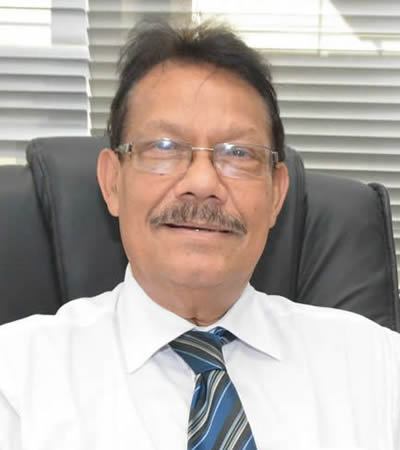 Roland Dubois confides that the world is becoming impacted upon by the unprecedented rate of change of technology, which will bring with it massive changes in the way we do business, new skills in existing jobs, routine jobs will be robotized, and new jobs will be created. “The fourth Industrial Revolution is forcing companies to reexamine the way they do business. Moreover, it is disrupting almost every industry in every country. Obviously, our production, management and governance system will necessarily change. The World Economic Forum Future of Jobs Report states that the 4IR could displace 75 million current jobs but some 133 million new roles may emerge at the same time.”
Roland Dubois confides that the world is becoming impacted upon by the unprecedented rate of change of technology, which will bring with it massive changes in the way we do business, new skills in existing jobs, routine jobs will be robotized, and new jobs will be created. “The fourth Industrial Revolution is forcing companies to reexamine the way they do business. Moreover, it is disrupting almost every industry in every country. Obviously, our production, management and governance system will necessarily change. The World Economic Forum Future of Jobs Report states that the 4IR could displace 75 million current jobs but some 133 million new roles may emerge at the same time.”
He sees that e-learning is an alternative which can begin with the Civil Service College of Mauritius, which can extend its training capacity exponentially. He lays emphasis on the introduction of a mandatory national youth service scheme, duration to be determined, for all youth as from 15 or 16 years old wherein they will be taught all elements of civic values and enticed to get involved into social activities. “All our youth must be given the opportunity to master our two main business languages, English and French, and to develop employability skills so necessary to enable them to make the big jump to the world of work more readily. A framework may be developed to help our unemployed graduates to work on the African continent.”
He further claims that new breeds of entrepreneurs are needed to accelerate the orientation of SMEs towards technology driven SMEs and contribute to the expansion of industrial areas nationwide. “Every year, university graduates produce dissertations as part of their coursework, some of which could prove to be high value-added SMEs. This would certainly help in the development of technology driven entrepreneurs and the creation of higher value-added products. Successful entrepreneurs would be enrolled to coach and accompany these young entrepreneurs to be. “The SME graduate scheme must be revamped to make it more effective. A group of graduates should be attached to a group of SMEs on a rotation basis to ensure that the different SMEs benefit from the different fields of specialization of these graduates whilst ensuring that the graduates develop skills of how to create and operate a business.”
He also believes that a Chamber for work (‘Chambre des métiers’) must be set up to ensure that Mauritius becomes a nation of professional tradespersons. “As a result, more and more tradespersons would be encouraged to group themselves and create a new breed of SMEs. This will certainly result in a better parity of esteem of tradespersons culminating in a concomitant rise in their salary.”

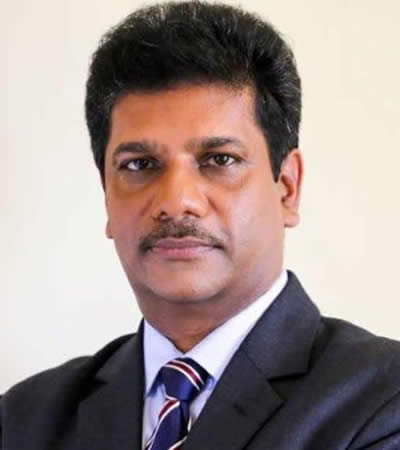 Roshan Seetohul, vice president corporate Affairs of EURO CRM and President of OTAM, reveals that the figures of 2018 shows that ICT sector had contributed only 4% to the GDP and for that year, we have witnessed a sectorial growth of 5.6%, slightly better than 2017.
Roshan Seetohul, vice president corporate Affairs of EURO CRM and President of OTAM, reveals that the figures of 2018 shows that ICT sector had contributed only 4% to the GDP and for that year, we have witnessed a sectorial growth of 5.6%, slightly better than 2017.
“This shows that the sector was quite stagnant for the past three or four years. Five years ago, the sector was seen as the third pillar of our economy and today, it is not included in the first five pillars. This means that we have urgent tasks to tackle and to see why there is a stagnation of the sector. I remain confident for the future of the sector, if timely and prompt measures are being taken.”
For this upcoming budget, he states that the Government should come forward with a strategic plan encouraging more local entrepreneurs to invest in the sector and in parallel remain open for external operators to settle for long business partnership in Mauritius. “In order to give a boost to Innovation and Creativity, a seed money should be allocated to young entrepreneurs and SMEs under strict conditions for sure. Besides, there is need for a kind of ICT Cultural revolution in all ministries.”
He adds that our priorities should remain competitive, have an adequate labour pool and bring high value-added operations in our business models. “It is time to identify our strength, weakness and threats, then come out with a real set of Top Priorities for the coming five and ten years, short- and middle-term strategy. That is because the technology, the demand and the sector is progressing too fast and we are condemned to keep pace!”
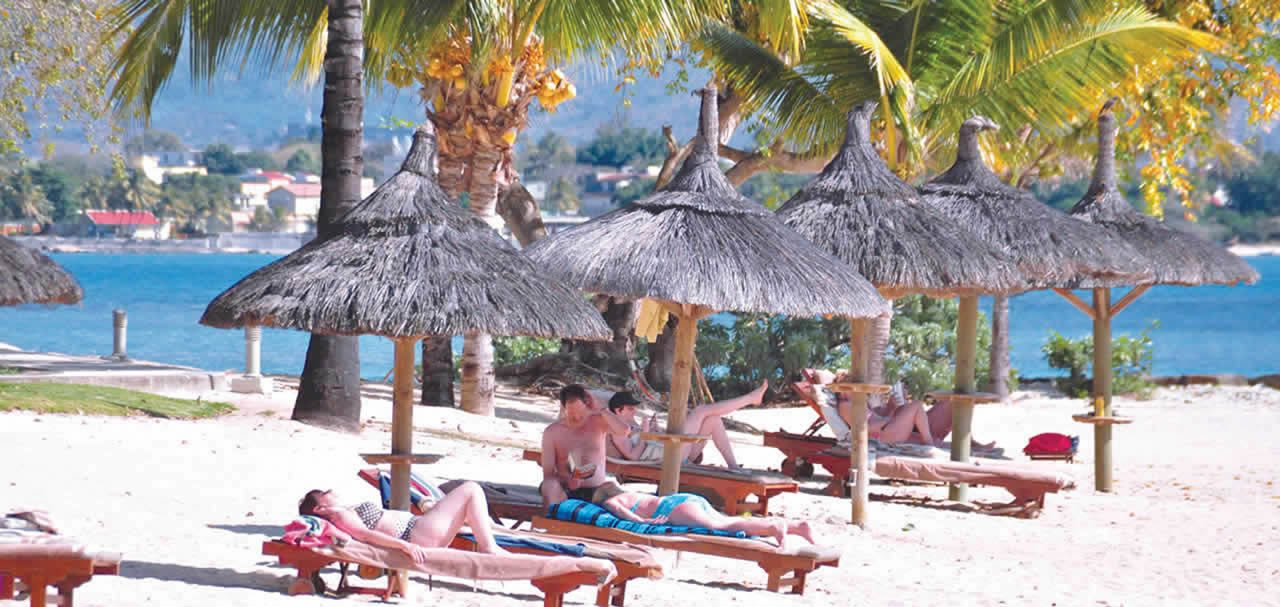
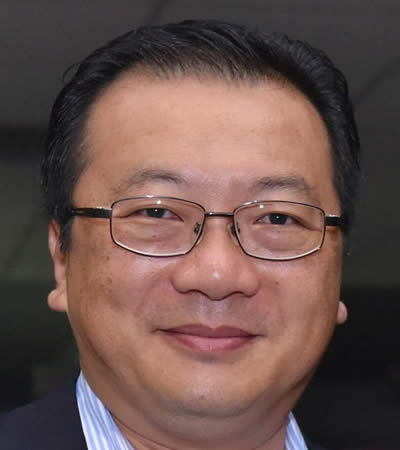 The Chief Executive Officer of the ‘Association des Hôteliers et Restaurateurs de l’île Maurice’ (AHRIM) states that the tourism sector is currently in a very tough situation. “Tourist arrivals for the first four months of 2019 are stagnant at 0.1% growth only. And successful cruise business has in fact hidden the hard truth that our tourism is significantly down at the beginning of this year. Tourist arrivals by air have actually dropped by 2.6%.
The Chief Executive Officer of the ‘Association des Hôteliers et Restaurateurs de l’île Maurice’ (AHRIM) states that the tourism sector is currently in a very tough situation. “Tourist arrivals for the first four months of 2019 are stagnant at 0.1% growth only. And successful cruise business has in fact hidden the hard truth that our tourism is significantly down at the beginning of this year. Tourist arrivals by air have actually dropped by 2.6%.
Each and every of our Top 7 markets is down, except for France and Germany. France though displaying a 2.3% growth so far in fact boasts a low 0.2% increase of arrivals by air and Germany though posting a 7.5% positive growth in arrivals concomitantly shows a decrease in arrivals by air of the order of -5.5%,” he states.
Jocelyn Kwok additionally underlines that “earnings are also down and though the total number of air seats into the destination shows a slight growth of 2%, the average load factor of airplanes is down.” He thus trusts that the current industry situation “is serious and calls for urgent remedial measures from all parties.”
Jocelyn Kwok trusts that our tourism goes beyond the mandate of our existing tourism bodies. “There are many other government actors who need to engage further in our tourism initiatives. There are key aspects of our product offerings that need better control and quality. We have had the opportunity to submit our budgetary proposals to the Ministry of Finance. We have developed three main themes: Firstly, to reinforce our product through stronger policies, better regulation and proper licensing. We wish for our tourists to be better protected and we want Government to keep the informal sector under check. Secondly, to reposition our destination as a prominent sustainable location. Much has already been said about this and the local press has abundantly displayed the poor situation that we have reached as a country.”
Thirdly, he explains, “to review our labour market gaps and adopt corrective short to medium term measures. This includes closing the gaps between the unemployed, the new labour market entrants and the persistent lack of skilled manpower in our establishments. We are advocating for better interactions between potential employees and private sector employers; this may entail the redirection of appropriate resources from the National Training Fund as well as a profound review of the respective missions of some public sector agencies involved in this field. Last but not least, without a significant input of foreign labour, our whole industry will soon become sub-standard and will stand to fail in its delivery commitments towards the nation.”

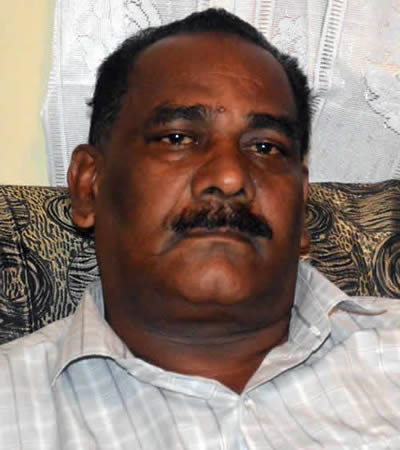 The President of the Association of contractors Gerard Ukoor states that the construction sector is not as stable as it appears. He claims that there is an inequality that prevails within the sector to the detriment of small contractors. For this budget, he is not expecting much. “Previous budgets announced a series of measures but nothing concrete has been realized. The sector did not experience the growth expected.”
The President of the Association of contractors Gerard Ukoor states that the construction sector is not as stable as it appears. He claims that there is an inequality that prevails within the sector to the detriment of small contractors. For this budget, he is not expecting much. “Previous budgets announced a series of measures but nothing concrete has been realized. The sector did not experience the growth expected.”
For this budget, the association has sent various propositions. Hence, they are expecting the setting up of a Provision Contract Bill which will ease their work and procedures of payment. “Banks are hesitant to give us loans. So this Bill will help us a lot. It already exists in various countries. So, why not here?”
He also insists that the system of award giving and factoring is reviewed by the Government so that the issue of inequality is addressed. “We are also expecting measures such as duty free on vehicles and different equipment. Besides, we are looking forward for a 10% social contribution of different projects.”

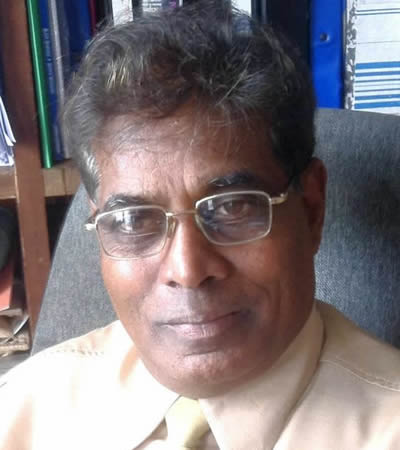 Laval Savrimootoo, president of the Estate Agents Association, reveals that currently, the sector is slow. He says that the Government is focusing more on foreigners buying properties in Mauritius and hence sort of neglecting the demand of the locals. “It is true that targeting the foreigners means a good investment but the demand of the locals also should be fulfilled. There are many Mauritians who are finding it hard to buy properties.”
Laval Savrimootoo, president of the Estate Agents Association, reveals that currently, the sector is slow. He says that the Government is focusing more on foreigners buying properties in Mauritius and hence sort of neglecting the demand of the locals. “It is true that targeting the foreigners means a good investment but the demand of the locals also should be fulfilled. There are many Mauritians who are finding it hard to buy properties.”
Nevertheless, he is optimistic for the upcoming budget, as he believes that the Government will come with the right measures. He is expecting the Government to come forward with a regulation for this sector. “The Government has already talked about a legal framework for this sector. So, we are expecting it to be included in this budget.” Other expectations include 100% duty free on vehicles and incentives for the middle class to be able to acquire a property.
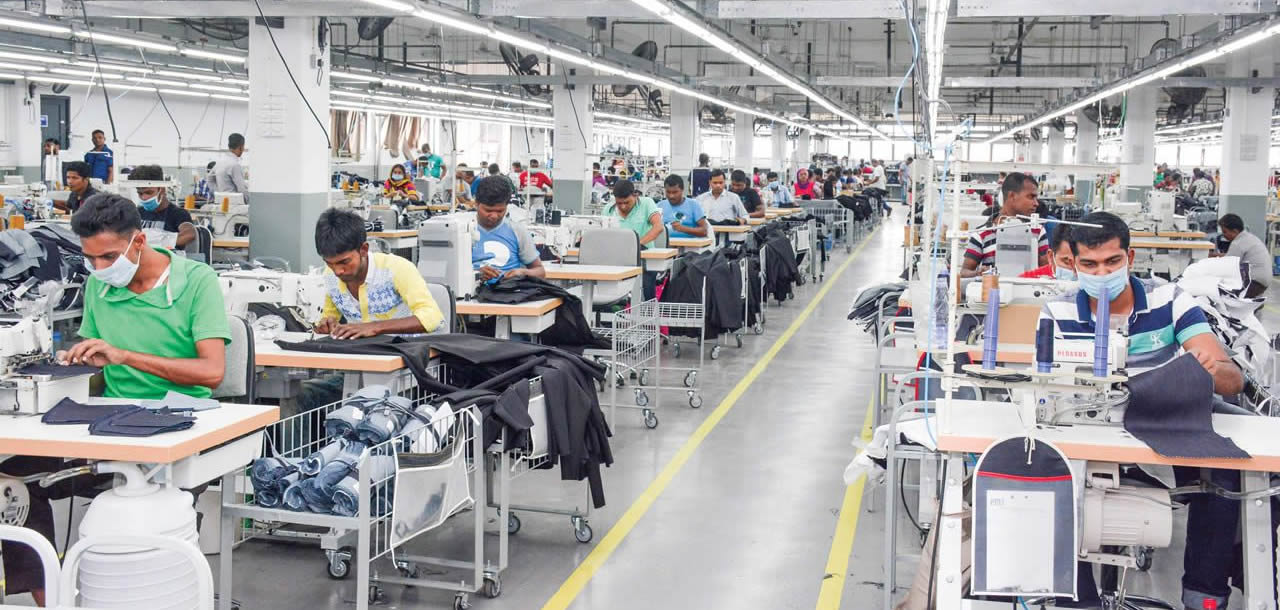
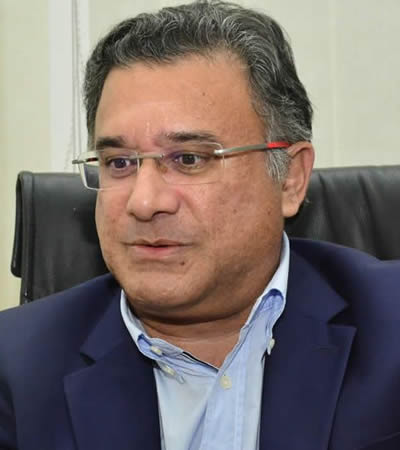 Ahmed Parkar explains that the crisis which the manufacturing sector is facing is not recent. “Factories have closed down, two have been put under judiciary administration and others are experiencing important cash flow problems. Moreover, the balance of payments has been affected and our physical trade deficit has hugely increased given the forecast of Rs129 billions of trade deficit for the year 2019 only.” The CEO of Star Knitwear trusts that the solution is to stop the closing down of the factories where possible.
Ahmed Parkar explains that the crisis which the manufacturing sector is facing is not recent. “Factories have closed down, two have been put under judiciary administration and others are experiencing important cash flow problems. Moreover, the balance of payments has been affected and our physical trade deficit has hugely increased given the forecast of Rs129 billions of trade deficit for the year 2019 only.” The CEO of Star Knitwear trusts that the solution is to stop the closing down of the factories where possible.
“The manufacturing sector is small and if we decrease our critical mass, we will have total closure of our factories. This will negatively impact the supporting industries such as suppliers who are linked to the industry. For those facing cash flow problems, we should implement financial support through discounting guaranteed by the Government. This means that when we export our products abroad, we have access with a line of credit to our export revenues immediately instead of waiting for clients’ payment. Such measures can help revive the industry,” he explains.
However, Ahmed Parkar states that despite the crisis, there are also positive factors which are promising for the sector. “Our industry is attracting new high brand clients who are facing issues in other countries. For example, there are the brand Armani and Lacoste which are implementing themselves in Mauritius. This is very positive as these are value-added clients who are ready to pay a higher price and thus help boost our industry by making profits,” he explains. He adds that the Mauritian manufacturing industry should target new online clients.
“The selling of products online is very promising. The advantage is that these online shops need fast turnaround, they need quality products and it is an ideal room for manoeuvre for Mauritius. The Government should thus bring forward measures such as speed to market subsidy on air freight, factors which can be maintained in order to keep the bench market of our competitivity in terms of cost of utilities. The Government should also pay attention to factors affecting us such as ease of access for foreign workers because it is obvious we cannot progress without them.”
The CEO of Star Knitwear trusts that the manufacturing sector still has a promising future ahead of it. “We need to review the framework together with the Government and analyse the situation together with clients who are sharing their ideas and what they are expecting. Consensus with the private sector and all stakeholders is vital.”

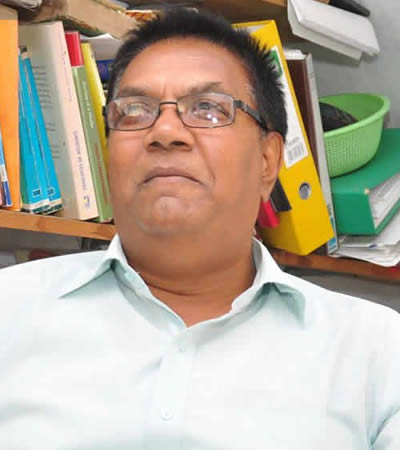 According to the president of the Small Planters Association, the agricultural sector of Mauritius has been stagnant since the past years. “There has been no evolution for sugarcane planters so far. In addition, small planters have also been facing various challenges since the past years, among the difficulties to have access to financial support and the need for modernising the vegetable production through the introduction of technologies.” Sunghoon Kreepalloo explains that during the pre-budgetary meeting with the Prime Minister and Minister of Finance, he shared the various gaps found in the sector and has formulated several requests among for small planters to be entitled interest-free loans.
According to the president of the Small Planters Association, the agricultural sector of Mauritius has been stagnant since the past years. “There has been no evolution for sugarcane planters so far. In addition, small planters have also been facing various challenges since the past years, among the difficulties to have access to financial support and the need for modernising the vegetable production through the introduction of technologies.” Sunghoon Kreepalloo explains that during the pre-budgetary meeting with the Prime Minister and Minister of Finance, he shared the various gaps found in the sector and has formulated several requests among for small planters to be entitled interest-free loans.
The first proposition he states is the promotion of small scale tourism projects. “Government has seen fit to provide millions of taxpayer’s money for infrastructure works to support major hotel groups in their wishes to develop numerous hotel projects in Les Salines, Black River. If the Government can provide so much support to big groups, what about small planters and coastal village dwellers wishing to set up their own small scale tourism ventures? We demand the Government to provide millions of taxpayers’ money also to small planters and inhabitants of the coastal villages of the South Coast wishing to set up small scale tourism projects, as they, too, will need infrastructure to develop their SMEs. That is, we trust that there should be the set up of a special small scale tourism scheme for small planters and coastal regions residents, with them being given support by MauBank, SMEDA, MTPA, Tourism Authority in terms of loans, training and marketing.”
Sunghoon Kreepalloo is also of the opinion that the acres of sugarcane land abandoned for years should be converted and used in an intelligent way. “AKNL has mapped out that there are close to Pomponette beach nearly 60 ‘arpents’ of abandoned sugar cane fields belonging to small planters. There are many more around Chemin Grenier. The potential for local economic development is huge. For example, we can use 1 ‘arpent’ of abandoned sugarcane field for the setting-up of ten eco-lodges with rooftop photovoltaic systems to the tune of Rs 20 million. Such a setup will be very attractive to tourists in search of authenticity and sustainability, especially from Europe. All the revenues would go directly to local people, staying in the local economy.”
He explains that small planters may also opt to set up a café-restaurant, spas, an organic farm to supply the lodges. “Small planters could also be encouraged to set up agri-solar farms as in Reunion Island, producing green electricity on top of organic produce. We thus propose a Solar Energy Scheme by Renewable Energy Cooperatives regrouping Small Planters and Citizens. This will ensure the growing of more bio-vegetables and a boost for the agricultural sector, namely the small planters.”
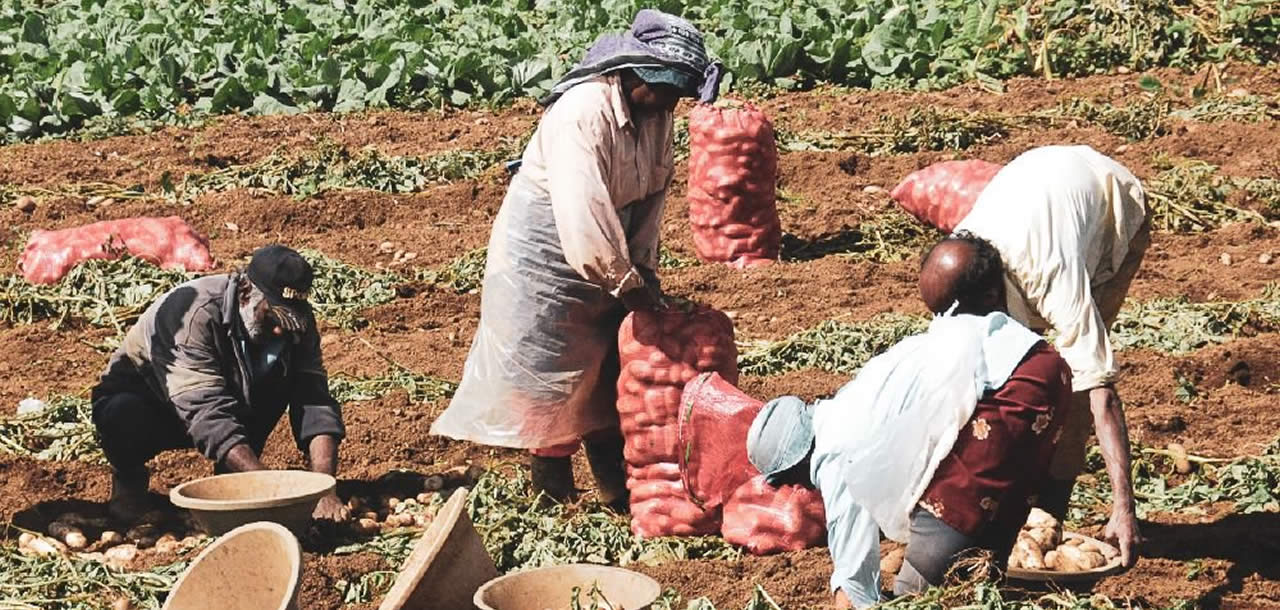
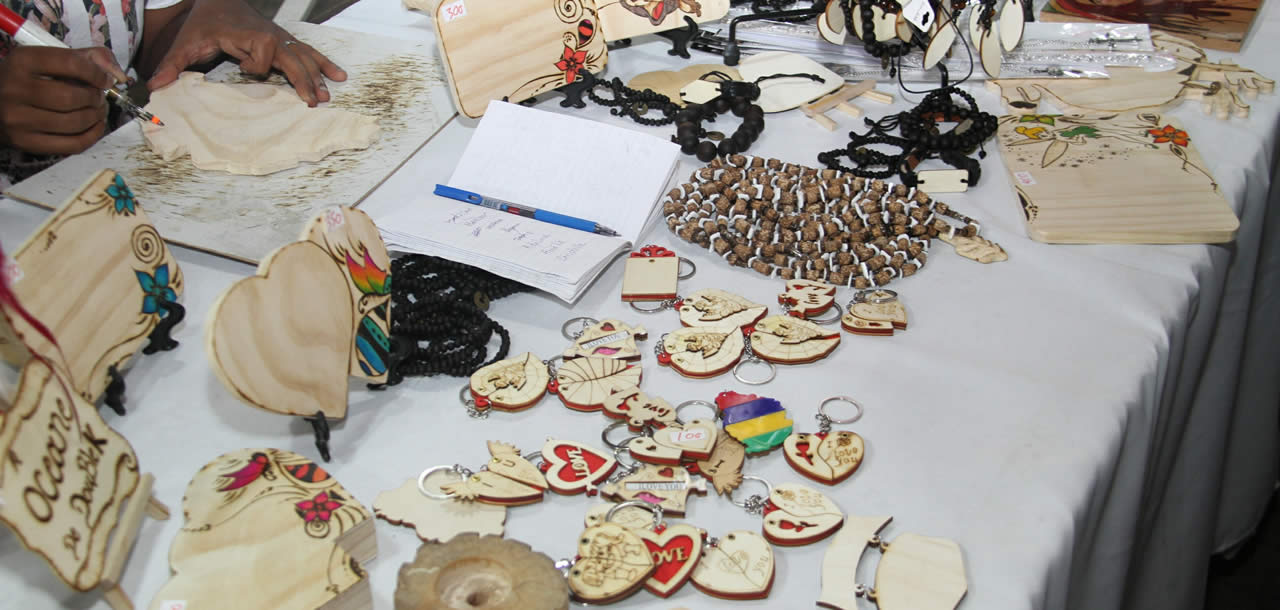
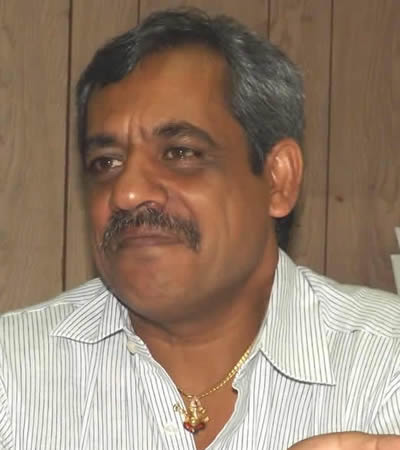 The president of the association of Small and Medium Enterprises (SME), who did not attend the pre-budgetary consultation held at the beginning of May by the Prime Minister and Minister of Finance, stated in a letter dated 7th May addressed to the latter his concerns about the sector and the measures he trusts should be implemented in the Budget 2019/2020.
The president of the association of Small and Medium Enterprises (SME), who did not attend the pre-budgetary consultation held at the beginning of May by the Prime Minister and Minister of Finance, stated in a letter dated 7th May addressed to the latter his concerns about the sector and the measures he trusts should be implemented in the Budget 2019/2020.
Amar Deerpalsing shared his concerns for the SME sector and deplored that despite his proposal since the Budget 2015/2016, nothing much has been implemented. “I voiced out our concern about the total failure of the Ministry of Business and Enterprise responsible for the SME sector and SME Mauritius. I proposed that this Ministry should simply be wiped out as well as SME Mauritius. I proposed the creation of a unit under the Ministry of Finance to be set up to cater for the needs of the SME sector. I also voiced out that it is inadmissible that large employers in the export sector were paying less to expatriate workers as compared to other smaller enterprises and even while operating in the same sectors. This situation led to unfair competition to the detriment of SMEs.”
He further stated that he also “raised the issue of an enactment for business facilitation to foreign investors and other red carpet treatment, fast track committees whereas SMEs are still facing the cumbersome Building and Land Use Permit associated with the administrative burden, red tapes... I requested for rationalizing the interminable types of licenses that more often lead to confusion and streamlining of procedures. Absolutely nothing has been done yet. I also made representations relating to the unwarranted persecution of the MRA towards SMEs. Compliance to numerous mandatory monthly/quarterly returns pertaining to PAYE, NPF, Statement of Income, among others, are too costly as often outsourced by Micro and Small Enterprises. Non-compliance is not only an additional heavy financial burden through disproportionate penalties but also a psychological nightmare,” he explained in the letter.
He states that he also highlighted the difficulties faced by SMEs engaged in the manufacturing sector in the absence of a level playing field towards imports. “I requested that tariff and non-tariff barriers had to be introduced, otherwise we shall witness further erosion of our industrial base.
However, further cuts on import duty were introduced. A levy of Rs. 2 has been introduced on plastic containers in the last budget, which ought to come effective as from the 1st of February 2019. However, the implementation has been postponed to become effective on the 2nd May 2019.” He also deplored that some plastic containers also have been exonerated of this levy.
He highlighted that in the last four budgets, several measures were announced regarding SMEs but they have not been implemented to his knowledge. Among “the SME Bank with 10 billion rupees at Ground Floor at the SICOM Tower, SMEDA to fast track permits and approvals in a minimum time, SMEDA to collect fees for trade licenses on behalf of local authorities, SMEs will be exempted to pay corporate tax for 8 years, Industrial space for 7 SME parks, Smeda/Enterprise Mauritius/National Woman Entrepreneurs Council to be merged into one organisation, National SME Incubator Scheme, Agri-Business Park in Highlands over 100 acres, two SME industrial parks at Plaine Magnien and Vullemin, DBM industrial zone at Coromandel will be converted into a modern integrated SME industrial park, E-Platform to provide more visibility to SME products, Amendment to Code of Commerce to allow use of all movable assets as loan collaterals, Relax criteria and speed for SMEs to employ foreign labour, 100 Million rupees for implementation of 10-Year Master Plan for SME Sector.”
“Had all the above budgetary measures been implemented,” stated Amar Deerpalsing, “the SME sector would be thriving today and would have surely become the backbone of the economy by surpassing the 50% mark of GDP. SMEs have lost their faith in budget speeches, as they have turned out to be false promises.”
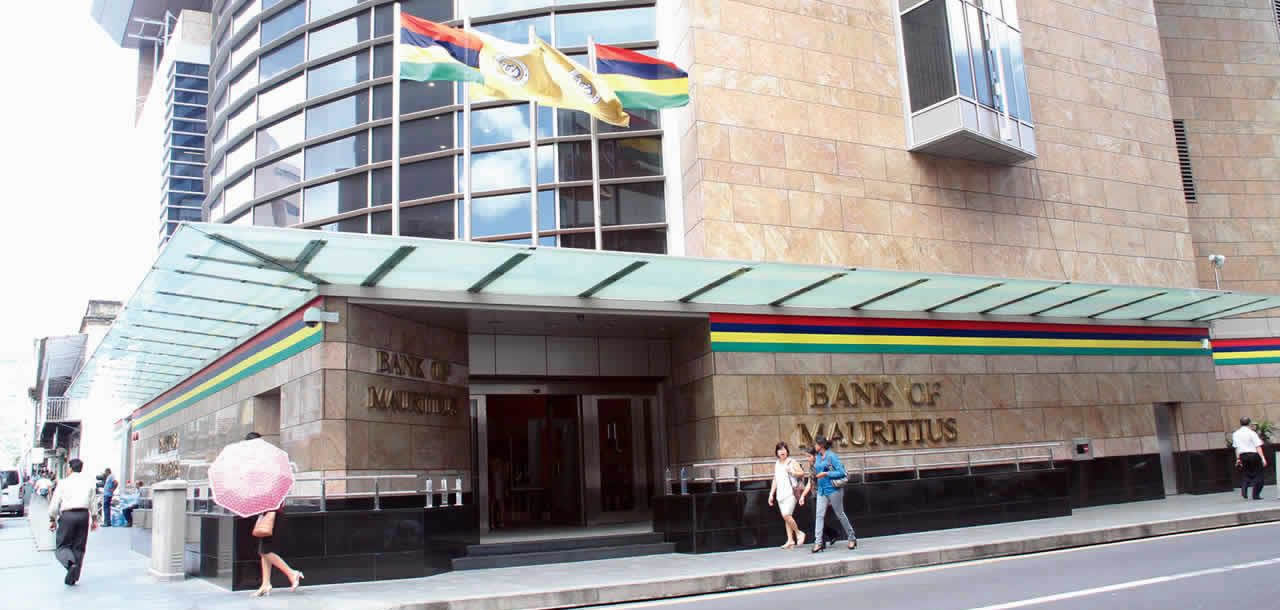
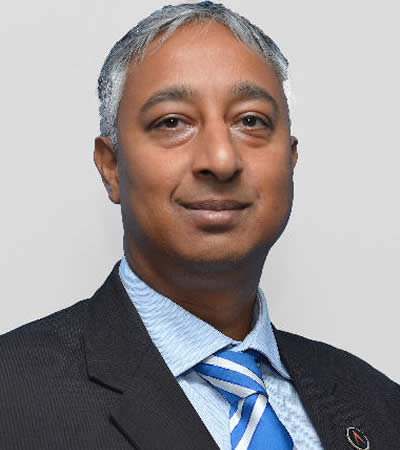 Regarding the situation in the Finance sector, the President of the Association of Trusts and Management Companies gives an overview in relation to the global business sector. “The sector is facing the challenge of re-inventing itself and we want to look at opportunities ahead to be able to compete on the same levels as the top international centers. This is both in terms of products and services we offer as well as markets we deal with. In terms of products and services we have started to move to the level where we are providing front end services such as wealth management, investment management, fund administration, etc. from Mauritius. The industry continues to work closely with the authorities with suggestions of new products to keep us competitive.”
Regarding the situation in the Finance sector, the President of the Association of Trusts and Management Companies gives an overview in relation to the global business sector. “The sector is facing the challenge of re-inventing itself and we want to look at opportunities ahead to be able to compete on the same levels as the top international centers. This is both in terms of products and services we offer as well as markets we deal with. In terms of products and services we have started to move to the level where we are providing front end services such as wealth management, investment management, fund administration, etc. from Mauritius. The industry continues to work closely with the authorities with suggestions of new products to keep us competitive.”
As for the markets, Mahesh Doorgakant states that “while India remains a strong partner, we are also now making big strides in Africa. Our Africa strategy, it should be noted, is driven more by the fact that we are already a developed financial centre with political stability, have skilled workforce and good governance. We are establishing ourselves as a jurisdiction of substance.” What measures should the government come forward with for this sector? “We expect measures to further facilitate ease of doing business in Mauritius. Here, we should be targeting not just to be number one in Africa but in the worldwide big leagues. This will come about from making it possible for the authorities to be able to respond to the demands of the sector. We are targeting growth and our authorities also need to have proper resources to cope,” he states.
“Technology”, he adds, “will also be a big part in that and we want to see facilities and incentives which will encourage service providers to use more specialised technological tools. As an example, there are tools which enable management companies and others to have access to worldwide databases in order to perform due diligence on investors and clients. These can be made more accessible.”
Lastly, Mahesh Doorgakant trusts that “one of our attractive points is our robust legal framework. We realise that there are constant changes which happen on a global basis (e.g. data protection in the last year) and government needs to ensure that there is a mechanism in place to guarantee that our laws and regulations are constantly updated in line with the latest best practice. This will at the same time help us to stay onside with international organisations such as ESAAMLG, OECD and others.”
 J'aime
J'aime